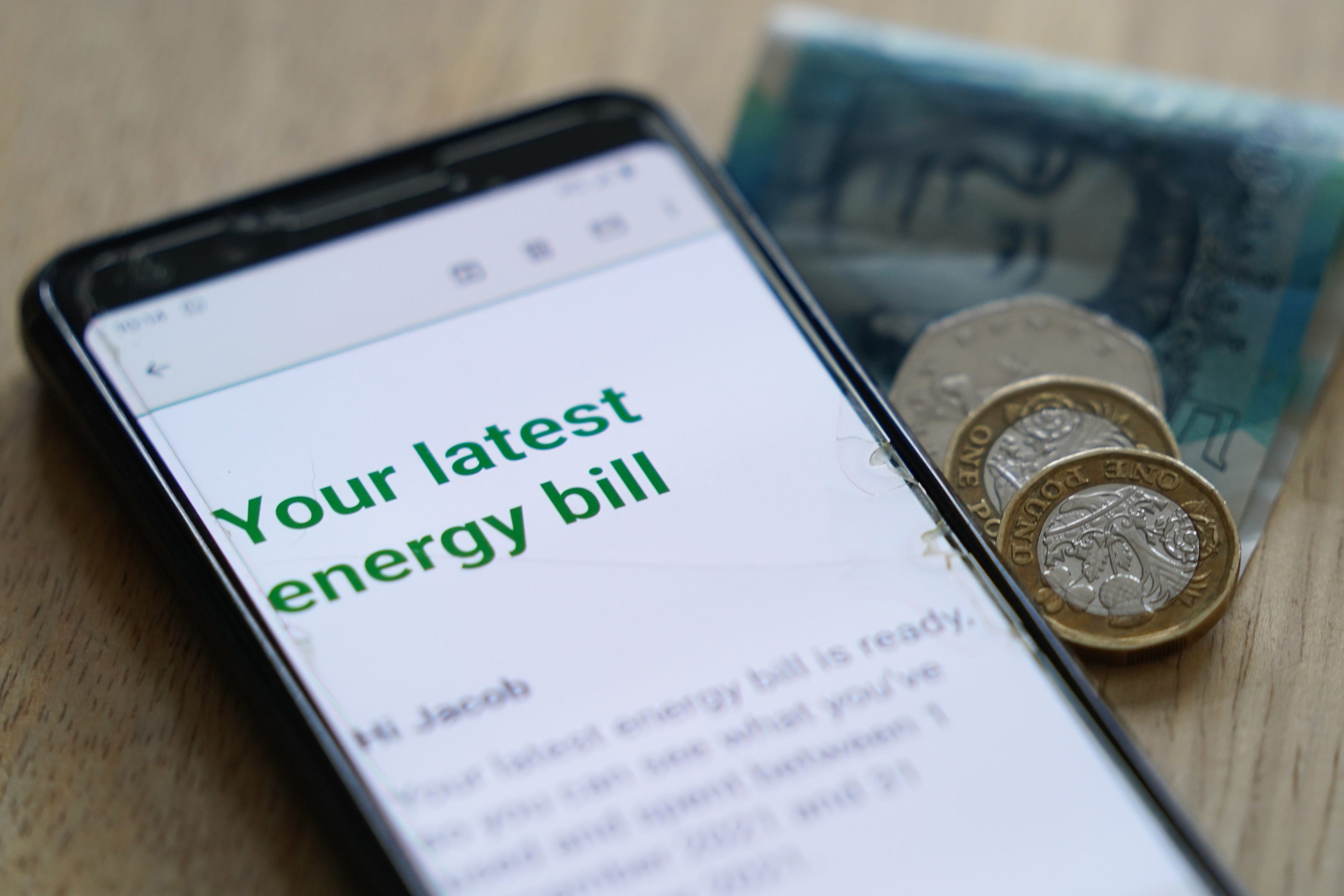Energy bosses and Government discuss ways to support vulnerable households
The meeting comes as the energy price cap is due to rise by £149.

Energy firm bosses will meet the Government on Wednesday to discuss support for vulnerable households ahead of the winter.
Executives from Centrica, EDF, E.On, Octopus Energy, Scottish Power, Good Energy, Rebel Energy, Ovo, So Energy, Ecotricity and Utility Warehouse are expected at the roundtable event.
Industry body Energy UK, the regulator Ofgem, and Citizens Advice will also attend the meeting with minister Miatta Fahnbulleh.
The average household energy bill is to increase by £149 from October after Ofgem said it was increasing its price cap as homes approach the winter months.
At the same time, the Government is withdrawing winter fuel payments from millions of pensioner households not in receipt of benefits.
The meeting on Wednesday is expected to cover the measures suppliers will take this winter to help those already in energy debt and stop others from falling into it.
Ministers hope and expect suppliers to commit to go substantially further than the voluntary measures they offered last winter.
The Government’s policy on winter fuel payments, aimed at filling a black hole in the public finances, will stop the handouts for people in England and Wales who are not in receipt of Pension Credit or other means-tested benefits.
It is expected to reduce the number of pensioners in receipt of the up to £300 payment by 10 million, from 11.4 million to 1.5 million, saving some £1.4 billion this financial year.
Sir Keir Starmer has faced demands to U-turn on the plan, with pressure inside his party, from political opponents and from campaigners.
Charity Age UK said it “strongly” opposes means-testing the payment because it means “as many as two million pensioners who badly need the money to stay warm this winter will not receive it and will be in serious trouble as a result”.
Simon Francis, co-ordinator of the End Fuel Poverty Coalition, said: “In real terms, the changes this winter mean that some older people will face the highest energy bills on record.
“This has the potential to create a public health emergency which will actually create more pressure on the under-pressure NHS which the Prime Minister says he wants to fix.”
On Tuesday the Prime Minister said: “I didn’t want to means-test the winter fuel payment, but it was a choice that we had to make, a choice to protect the most vulnerable pensioners while doing what is necessary to repair the public finances.”
Ofgem’s decision on price cap will see it increase by 10% from the current £1,568 for a typical household in England, Scotland and Wales to £1,717.
It is, however, around £117 cheaper than the cap in October last year, which was £1,834.
Rising prices in the international energy market, due to heightened political tensions and extreme weather events, were the main driver behind the decision.
It means households will be going into the colder months facing higher bills than since April when the cap was lowered.
Bookmark popover
Removed from bookmarks